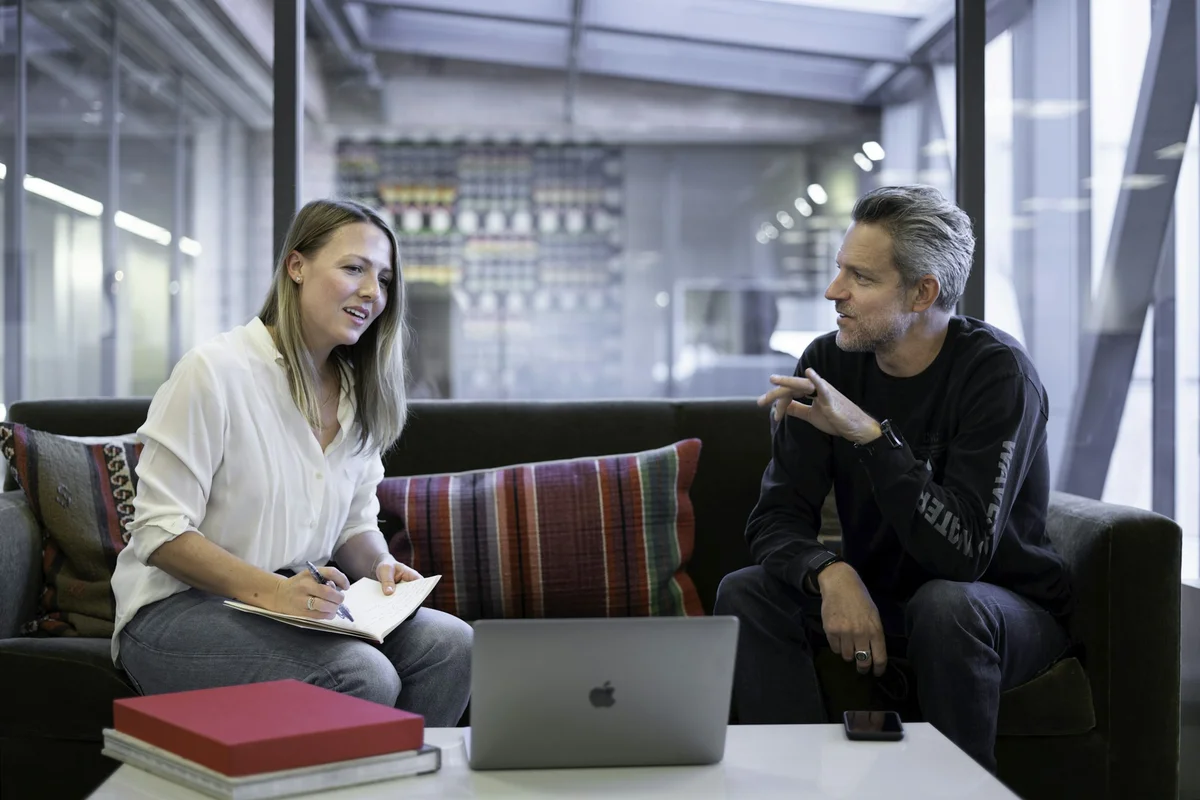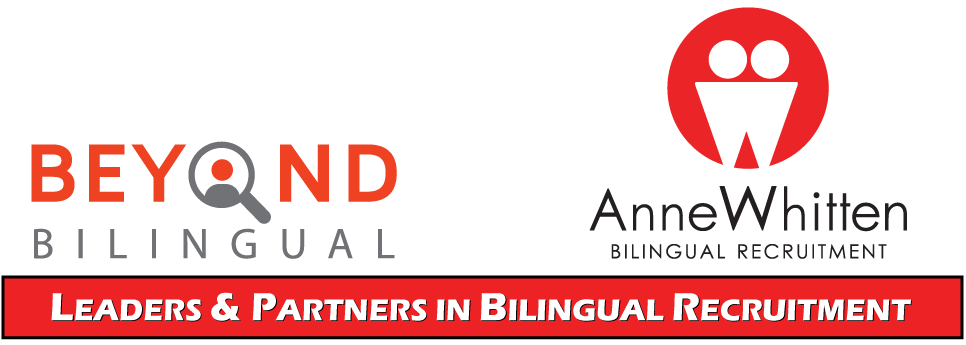Navigating a job interview can be a daunting exercise, but for bilingual candidates, it is an opportunity to stand out. The advantage of being bilingual stretches beyond personal achievement; it significantly enhances your marketability in today’s diverse job market. With the ability to communicate with a broader clientele, bilingualism opens doors to opportunities where language skills are not just favorable but often required. We understand that preparation is paramount, especially when an interview spans multiple languages. From crafting responses for frequently asked interview questions in your second tongue to fine-tuning your conversational fluency, our mission is to equip you with the strategies for success.
At Beyond Bilingual, we recognize the importance of your multilingual abilities as valuable strengths. In this article, we will equip you with useful job interview tips that encompass comprehensive preparation techniques, strategies for preparing specifically for bilingual job interviews, and effective methods to highlight your language expertise. By providing guidance on cultural subtleties and industry jargon in both languages and effectively showcasing your experience and value, we aim to boost your confidence as you approach your bilingual interview.
Understanding the Role of Bilingualism in Job Interviews
At Beyond Bilingual, we recognize the pivotal role that bilingualism plays in today’s job market. Companies across the globe are increasingly valuing employees who can communicate in multiple languages, particularly when they have international business or a diverse customer base. In fact, bilingual individuals often have better job prospects, and here’s why:
- Enhanced Marketability: A staggering 9 out of 10 employers rely on bilingual and multilingual employees. With a projection that 56% of employers expect the demand for bilingual speakers to increase in the next five years, the message is clear—bilingualism is a sought-after asset.
- Addressing the Skills Gap: There’s a significant language skills gap in the workforce, with 1 in 3 employers reporting this issue, and 1 in 4 having lost business due to a lack of foreign language skills. This gap represents an opportunity for bilingual candidates to fill a critical need.
- Higher Earning Potential: Bilingual professionals can earn between 5%-20% more per hour than those who speak only one language. This financial incentive underscores the tangible benefits of being bilingual in the professional sphere.
In various departments, such as customer service, sales, marketing, management, and IT, being proficient in more than one language opens the door to myriad opportunities. Consider the top career choices for bilinguals: interpreter, translator, customer service representative, sales representative, and marketing coordinator. These roles not only require language proficiency but also benefit from the enhanced problem-solving, decision-making, and multitasking skills that bilingual and multilingual employees bring to the table.
Furthermore, employees who can engage with non-English speaking customers in their preferred language tend to build deeper, more lasting relationships. This connection is invaluable and often leads to more job offers and better salaries for bilingual employees, who can earn 5% to 20% more than unilingual employees.
In our interconnected world, gaining and activating a multicultural edge is not just beneficial—it’s a condition for success, especially in globalized industries. For those in social-impact careers, such as education, health care, and social work, bilingualism is particularly valuable due to the high level of person-to-person interaction.
As a bilingual candidate, it’s essential to promote your language skills on your resume and during the job interview. Emphasize your ability to understand diverse perspectives, your creativity, problem-solving expertise, and communication skills. These attributes set you apart from hundreds of other applicants vying for the job you want.

Before the job Interview: Preparation is Key
Embarking on the journey to a successful bilingual job interview begins long before you enter the meeting room. Preparation is a cornerstone of confidence, and in the case of a bilingual role, it becomes doubly essential. Here’s how you can prepare to not only impress your potential employers but also to express your linguistic prowess with finesse:
- Company Research:
- Delve into the company’s website and social media pages to understand its culture, values, and language nuances.
- Identify the company’s target markets and language preferences, considering if there’s a specific dialect you should be familiar with.
- Dual-Language Preparation:
- Craft two sets of responses for common interview questions in both languages.
- Rehearse your answers with a bilingual peer to refine grammar and presentation skills.
- Language Proficiency:
- Brush up on areas of weakness in pronunciation, comprehension, or grammar.
- Practice speaking and listening in your second language to ensure smooth communication during the interview.
- Bilingual Materials:
- Prepare a bilingual version of your resume, cover letter, and work samples, showcasing your ability to operate professionally in both languages.
- Interview Questions:
- Familiarize yourself with common bilingual customer service representative interview questions if applying for such roles.
- Prepare thoughtful questions for the interviewer in both languages to demonstrate your engagement and interest.
- Post-Interview Etiquette:
- Display a goal-oriented attitude and thank the interviewer in both languages at the end of the interview.
- Follow up with a thank-you email or phone call in both languages to leave a lasting positive impression.

During the job Interview: Showcasing Your Bilingual Abilities
In the heart of your job interview, it’s your moment to shine and exhibit the bilingual skills that make you a standout candidate. Here’s how to ensure you’re showcasing your bilingual abilities effectively:
- Highlight Your Bilingual Proficiency: Right off the bat, mention your language skills, which are a valuable asset in the job market, with a significant number of U.S. residents speaking a language other than English at home. This sets the stage for a discussion about how your abilities can benefit the company’s diverse clientele.
- Demonstrate Cultural Competence: Illustrate your understanding of the culture associated with the language you speak. This cultural insight is crucial for companies to better serve their community and connect with non-native English speakers. Share anecdotes of times when your cultural knowledge was an asset in a professional setting.
- Showcase Your Adaptability: Bilingual employees are not just translators; they are cultural liaisons. Discuss how your adaptability has been an advantage in previous roles and how it can enhance the company culture and benefit the job description in multiple ways.
Remember, during the interview:
- Use Both Languages: If the job description emphasizes bilingualism, don’t hesitate to answer some questions or provide remarks in both languages. This not only showcases your fluency but also your ease in switching between languages, a skill that can be particularly impressive to potential employers.
- Professional Examples: Offer concrete examples of situations where your bilingual skills have come into play. Whether it was a project completed, a deal closed, or a customer issue resolved, these stories provide a clear picture of your abilities in action.
- Proof of Proficiency: Be prepared to provide proof of your language skills, such as certificates from proficiency tests, which can offer an official validation of your abilities and set you apart from other candidates.
- Discuss Financial Benefits: Bilingual workers earn an average of $10,000 more in annual household income. Mention how your skills can contribute to the company’s financial success, as well as your own.

After the job Interview: Next Steps and Follow-Up
After your job interview, it’s crucial to take proactive steps to maintain the momentum and continue building a positive impression with the potential employer. Here’s what you should do:.
- Follow-Up Protocol:
- Initial Follow-Up: If you haven’t heard back within a week, send a follow-up email. Address the interviewer by their first name to maintain a personal touch, restate your interest in the role, and inquire about any updates regarding the decision-making process.
- If No Response: Should there be no response to your initial follow-up, it’s acceptable to send a second email after another week or two. Persistence shows dedication, but always remain courteous and professional in your communication.
- If Response Without Decision: In case you receive a reply without a definitive answer, craft a response that leaves the door open for future communication. This could involve expressing continued interest and politely suggesting a timeframe for when you might follow up again.
- Post-Interview Reflection:
- Self-Evaluation: Take the time to debrief after the job interview. Write down any questions that caught you off guard, answers that could have been improved, and note your strengths and areas for development. This reflection is invaluable for honing your interview skills for future opportunities.
- Professional Networking: Keep in touch with the recruiter and thank them for their assistance throughout the process. Add them on LinkedIn to stay connected with the job market and be aware of new opportunities that match your bilingual skills.
- Continued Job Search:
- Don’t put all your eggs in one basket. Continue applying to other roles and keep your options open. This not only increases your chances of finding a suitable position but also helps manage expectations and avoid potential disappointment.
Conclusion: Success in your job interview
Through this article, we have journeyed together, exploring the ways in which your bilingual talents can not only enhance your employability but also elevate the organizations you may join. We’ve highlighted the promising landscape of opportunities that being bilingual unfolds, from bridging cultural gaps to contributing significantly to a company’s international success
. Beyond Bilingual stands firm in the belief that your multilingual capabilities are pivotal for the global job market and we’ve equipped you with an arsenal of strategies to navigate your next bilingual job interview with poise and confidence.
Remember, at Beyond Bilingual, we’re passionate about helping you leverage your bilingual abilities to find the perfect job fit. If you’re looking for a placement agency that views you as more than just a resume, we’re here to support and get to know you and your career ambitions.

